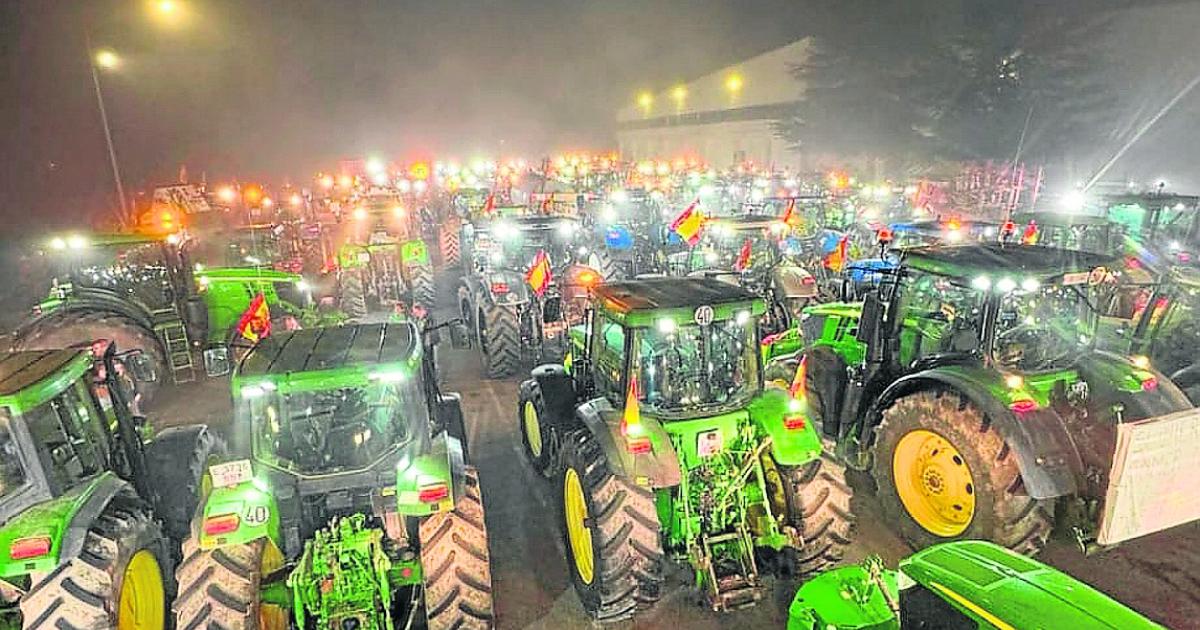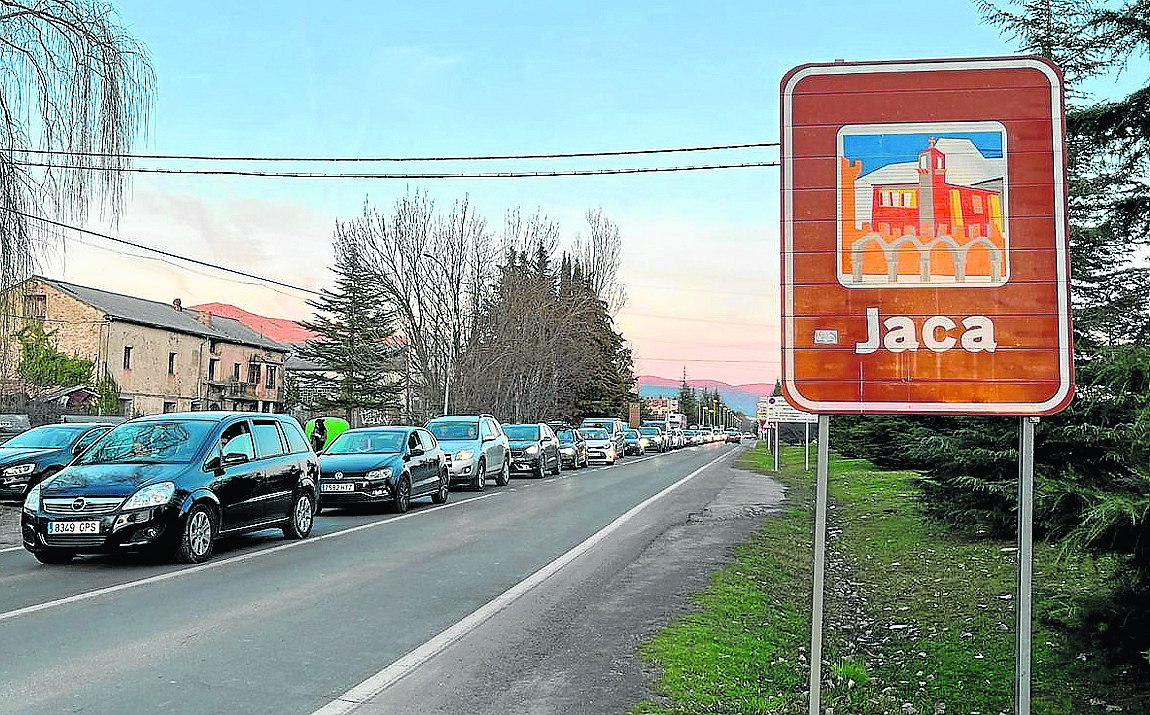The main roads of the Pyrenees were blocked for several hours by a protest of 360 tractors

Hundreds of farmers in Huesca province took to the streets yesterday with their tractors without any prior notice, once again demonstrating against communal policies. The slow march blocked the return of vehicles from the Pyrenees, causing traffic jams several kilometers long. Tractor units started moving at 4:00 pm and traffic was not completely normalized until after 9:30 pm.
The government delegation in Aragon made it clear that these marches had not been previously reported and that at the time they became aware of them, The Civil Guard deployed its patrols to control traffic and maintain security. He estimated the number of tractors participating in the various columns at 359.
These mobilizations “without acronyms or flags” had already begun last Friday in La Litera and Jacetania. This time, tractors slowed traffic on the main access roads to the Huesca Pyrenees. Thus N-240, between Puente la Reina de Jaca and Esso-Veral, and N-330, between Laneway and Rapun, Two exit routes from ski resorts in the Aragon and Tena valleys. A slow march was also carried out on the A-138 between Anet and Escalona (57 km) for access to the Sobrarbe area; and the N-123, near Estada, and the N-230, between Castillonroy and Cassos (Lerida) and from Alcampel to Benbarre, accessing Ribagorza.
At Barbastro, fifty tractors set off towards Grouse in the afternoon. They were joined by farmers from Estadilla and Fonz and dozens of allies from the Ribagorza region, who came from El Grado, Torres del Obispo and Graus to march towards the capital of Somontano. The Civil Guard instructed them to go through the center of Barbastro to reduce congestion on the N-123. Where traffic became normal at seven in the evening. All vehicles were concentrated in the Alcampo parking lot before returning again to their original locations.
Farmers and herders in Ribagorza claimed that A “spontaneous movement” to demand that we not operate below cost; decriminalizing livestock farming; Making the application of the new CAP more flexible, reducing bureaucracy; Maintenance of Agricultural Diesel Bonus; Reconciliation of the sector with the application of the 2030 Agenda; and respect for the environment and rural areas.
Meanwhile, the agricultural organizations of Aragon (Araga, Asza, UAGA and UPA) have agreed to call Joint protest action on 8, 13 and 22 February Condemning the huge bureaucracy of community politics and free trade agreements. Today he will give details in an appearance in Zaragoza.

UAGA Secretary General Jose Maria Alcubierre emphasized that It is not agricultural organizations that organize such “spontaneous protests that reflect the discontent that exists.” He predicted this would happen today, when he would present his calendar of “systematic and fully authorized” mobilisation. And he said he “understands the frustration that exists in the field and that these tractor units emerge at the local and regional level.” Fernando Luna, president of Asaja Huesca, defended the unity of action of the agricultural organizations. ,Let everyone do what they want to do. “I can’t speak for those who protested,” he said.
UPA General Secretary José Manuel Roche agreed that “agricultural organizations cannot take responsibility for external movements that do not know who is organizing them,” although “many of those who participate are our farmers.” They are tractor units, he said, “which are convened by a national platform through social networks, reminiscent of truck drivers” and that “It uses the agricultural sector for other kinds of purposes and political purposes.” And furthermore, he said, “they go against the agricultural organizations”, which he called “a mistake because they are the ones who interact with the administration.”
,This was successful despite the speed with which calls moved through the network. “We must support whatever is done and move forward until the government sits down to negotiate,” said Federico Llorente, president of Araga. “We take this protest in agricultural organizations as a warning to be more vigorous.” “They have overtaken us,” he concluded.